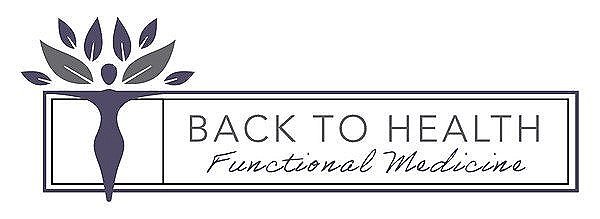Blood Sugar Imbalances, Insulin Resistance & Their Hidden Impact on Thyroid Health
Blood sugar dysregulation isn’t just a concern for people with diabetes—it’s a root cause of inflammation, hormonal chaos, and autoimmune flare-ups, especially in women struggling with Hashimoto’s thyroiditis and hypothyroidism. If you’re riding the blood sugar rollercoaster daily (hello, 3 p.m. crash), you may be unknowingly feeding the very symptoms you’re trying to heal.
Let’s dive into how your metabolism, adrenals, and thyroid are intimately linked—and what you can do starting today.
THE BLOOD SUGAR–THYROID CONNECTION: WHY IT MATTERS
Your body relies on steady blood sugar for everything—energy production, mood balance, immune modulation, hormone conversion, and more. But frequent blood sugar spikes (after refined carbs, sugar, or skipping meals) followed by reactive crashes put your body into a state of constant stress and inflammation.
Here’s what happens in your body:
Blood sugar spikes → insulin surges → body stores excess glucose as fat
Frequent spikes → insulin resistance → cells stop responding to insulin
Insulin resistance → higher inflammation + impaired thyroid hormone conversion (T4 → T3)
Cortisol rises due to stress → further blocks T4 → T3 conversion + suppresses TSH
Adrenal fatigue → thyroid hormone production and signaling decline
Autoimmune flares become more likely in a high-inflammation internal environment
Key point: Even if you’re not diabetic, unstable blood sugars can exacerbate Hashimoto’s, contribute to hypothyroidism, and stall healing.
SCIENCE SNAPSHOT
Insulin Resistance & Thyroid: Research shows that women with Hashimoto’s often display markers of insulin resistance, even if their glucose is “normal.”¹
Adrenal-Thyroid Link: High cortisol from reactive hypoglycemia (blood sugar crashes) suppresses thyroid-stimulating hormone (TSH).²
Inflammation Disrupts T3 Conversion: Chronic inflammation from elevated insulin and glucose impairs the deiodinase enzymes needed to convert inactive T4 into active T3.³
Autoimmunity: Blood sugar instability may increase intestinal permeability (“leaky gut”), triggering immune dysregulation in genetically susceptible individuals.⁴
SIGNS OF BLOOD SUGAR DYSREGULATION
Many women with Hashimoto’s or hypothyroidism experience symptoms of low blood sugar (hypoglycemia) or insulin resistance, even without a diagnosis of diabetes:
Fatigue after meals
Craving sweets or carbs, especially mid-morning or late afternoon
Mood swings, irritability, or anxiety
Lightheadedness between meals
Waking at 2–3 a.m. with a racing heart
Belly weight gain despite healthy eating
Difficulty losing weight
Brain fog and poor concentration
HOW TO BEGIN TO HEAL
1. Build Blood Sugar-Balancing Plates
Use the PFF Formula: Protein + Fat + Fiber at each meal.
Protein: Wild salmon, grass-fed beef, tempeh, lentils
Healthy Fats: Avocado, olives, coconut oil, flaxseed
Fiber: Non-starchy veggies, chia, berries, flax meal
I teach this framework in my Holistic Hashimoto’s Healing Community & bestselling book You Can’t Outrun Your Fork, and all recipes follow this healing structure to naturally support blood sugar and hormones.
2. Reduce or Eliminate Refined Carbs & Sugars
Refined carbs (white bread, pasta, pastries, sugary beverages) create sharp glucose spikes and worsen insulin resistance over time. Swap for:
Skip: White flour, white rice, baked goods, soda, sweetened coffee and tea drinks
Choose: Quinoa, sweet vegetables (carrot, beet), low-glycemic fruits (berries, green apple)
3. Space Your Meals Wisely
Avoid grazing all day. Frequent snacking can keep insulin elevated. Instead:
Aim for 3 solid meals a day with 4–5 hours between
Only snack if truly hungry (use a protein-fat-fiber snack like a boiled lentil wrap or hummus and veggies)
4. Consider Intermittent Fasting (Cautiously)
For some women, intermittent fasting (IF) can improve insulin sensitivity and reduce inflammation. However, it's not for everyone—especially if you're underweight, highly stressed, or have adrenal fatigue.
Start slowly: 12:12 fast (e.g., dinner at 7 p.m., breakfast at 7 a.m.)
Only try longer fasts (14–16 hrs) once blood sugar is more stable
Avoid IF if you feel dizzy, cold, anxious, or fatigued - OR - if you are a cycling female as we need to fast differently - contact me for details.
Curious if IF is right for you? Book a complimentary consult and I’ll help customize a safe fasting protocol tailored to your labs, thyroid, and energy levels.
5. Support Your Adrenals and Liver
Stabilizing blood sugar supports adrenal function (reduces cortisol spikes). But also make time for:
Gentle movement (walks, stretching, yoga)
Blood sugar-friendly snacks every 3–4 hrs if hypoglycemia is present
Anti-inflammatory foods: turmeric (if tolerated), dandelion tea, cruciferous veggies
Prioritize liver detox support to enhance hormone and glucose metabolism
FINAL THOUGHTS
Blood sugar is the foundation. You can’t heal thyroid autoimmunity, lose stubborn weight, or restore your energy if your glucose and insulin levels are out of whack. This is not just about “eating less sugar”—this is about rebuilding your body’s metabolic safety, building resilience, and cellular trust.
I lived this journey. My Hashimoto’s diagnosis was the wake-up call that helped me reclaim my health and ultimately change the course of my life. I now dedicate my time to empowering, educating, and equipping others to do the same—with functional testing, personalized food-as-medicine plans, and a deep understanding of what your labs are trying to tell you.
Ready to Heal?
Check out my best-selling book You Can’t Outrun Your Fork on Amazon for healing, hormone-supportive, blood sugar-stabilizing recipes.
Book a complimentary 1:1 consultation with me today. Let’s talk about your symptoms, labs, and goals—and build a personalized plan to reclaim your health destiny.
Join my Holistic Hashimoto’s Healing Community for amazing support along your hypothyroidism and Hashimoto’s healing journey.
